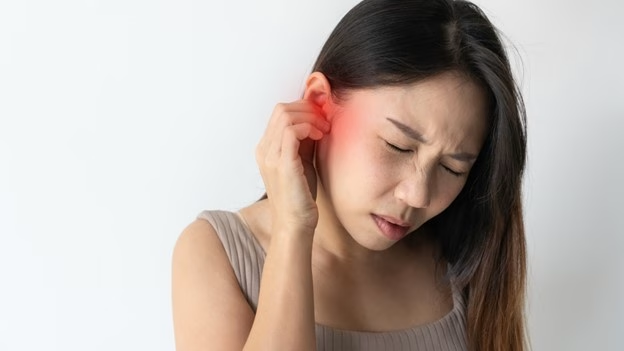
Understanding Stomach Bug Symptoms And Treatment Options
A stomach bug, or viral gastroenteritis, is a common illness that affects the digestive system, causing symptoms like nausea, vomiting, diarrhea, and stomach cramps. It is typically caused by viruses such as norovirus or rotavirus but can also result from bacterial or parasitic infections. The condition spreads through contaminated food, water, or close contact with an infected person, making it contagious. Symptoms can range from mild discomfort to severe dehydration, depending on the severity of the infection. Identifying the signs of stomach bugs early is essential for preventing complications and managing illness effectively. Following the right treatment options can speed up recovery and reduce the risk of further health issues.
Top 6 Signs And Symptoms Of Gastroenteritis (Stomach Bug)
- Nausea and Vomiting
Persistent nausea, often followed by vomiting. These symptoms occur as the body attempts to rid itself of harmful viruses, bacteria, or toxins. Vomiting can be intense in the early stages, making it difficult to keep food or fluids down. In most cases, nausea gradually subsides as the infection runs its course, but prolonged vomiting can increase the risk of dehydration. It's important to seek medical care if vomiting lasts more than 24 hours, becomes more severe, or is accompanied by blood. - Diarrhea
Frequent, loose, or watery stools are another primary symptom of viral gastroenteritis. Diarrhea occurs due to inflammation in the digestive system, which prevents proper absorption of water and nutrients. While mild diarrhea may resolve on its own, excessive fluid loss can lead to dehydration and electrolyte imbalances. Persistent diarrhea lasting more than two days, the presence of blood or mucus in stools, or signs of severe dehydration may require further examination to rule out bacterial infections. - Stomach Cramps and Pain
Abdominal cramps and pain are common as the stomach and intestines react to infection. The discomfort can range from mild to severe and may be accompanied by bloating. The inflammation in the gastrointestinal tract triggers muscle contractions, leading to cramping sensations. While the pain typically subsides as the digestive system recovers, persistent or severe abdominal pain, tenderness in the lower right abdomen (which may indicate appendicitis), or the presence of blood in the stool warrants immediate care. - Fever and Chills
A mild fever is the body’s natural response to infection, as it works to fight off harmful pathogens. Fever may be accompanied by chills, body aches, or sweating, making the individual feel more tired. While low-grade fevers usually subside within a few days, persistent fever symptoms that do not improve with fever-reducing medication or additional concerning symptoms like confusion or difficulty breathing indicate the need for further care. - Fatigue and Weakness
Extreme fatigue and weakness are common with a stomach bug due to fluid loss, poor nutrient absorption, fever, and disrupted sleep. The body expends significant energy fighting the infection, leading to feelings of exhaustion. While resting can help restore energy levels, persistent weakness, dizziness, confusion, or fainting may suggest worsening dehydration. If symptoms continue despite adequate fluid intake and rest, seeking care is recommended. - Dehydration Symptoms
Dehydration is a serious concern with a stomach bug, as vomiting and diarrhea rapidly deplete fluids and essential electrolytes. Common signs of dehydration include dry mouth, infrequent urination, and dizziness. Severe dehydration can lead to confusion, rapid heartbeat, extreme fatigue, and, in extreme cases, organ complications. If an individual is unable to keep fluids down or stops urinating completely, immediate medical intervention is necessary to prevent further complications.
Stomach Bug Treatment Options For Quick Recovery
Stomach bugs can be challenging, but with the right care, symptoms can be managed, and recovery can be quicker - here is how to treat a stomach bug effectively:
- Rehydration
Staying hydrated is the key to recovering from a stomach bug, as fluid loss can lead to dehydration. Drinking fluids with electrolytes helps restore the body's balance and prevent complications. In severe cases, Intravenous (IV) fluids may be needed to replenish lost fluids. - Medication
Medications can help relieve symptoms of a stomach bug by reducing nausea, controlling diarrhea, and easing fever or discomfort. However, certain medications should be used cautiously, as some may prolong the illness or cause side effects. It is important to follow dosage guidelines and avoid taking any medication on an empty stomach. Consulting a healthcare provider before using these treatments is recommended, especially for children, older adults, or individuals with underlying health conditions. - Diagnostic Tests
If symptoms persist, a healthcare provider may recommend diagnostic tests to determine the cause of the illness. Stool tests can help identify bacterial or parasitic infections, while blood tests may detect dehydration or other underlying conditions. In cases where abdominal pain is severe or persistent, imaging scans may be necessary to rule out conditions like gastrointestinal issues. - Monitoring
Recovery from a stomach bug requires careful monitoring of symptoms and giving the digestive system time to heal. Getting plenty of rest helps the body recover, while gradually reintroducing solid foods can prevent further irritation. It is also important to avoid alcohol, caffeine, and heavy meals, as they can disrupt digestion and prolong discomfort.
A stomach bug can be an uncomfortable and exhausting experience, but with the right care, most cases resolve within a few days. Recognizing symptoms early, staying hydrated, and allowing the digestive system to rest are key to a smooth recovery. While mild cases can be managed at home with fluids and light meals, persistent vomiting, severe dehydration, or prolonged symptoms require medical attention. Paying attention to warning signs and timely treatment can prevent complications and ensure a faster return to normal health.
If symptoms persist or become more severe, Visit AFC Urgent Care Greenhouse Rd serving Houston & Katy to ensure timely care and the right treatment for a safe recovery.

